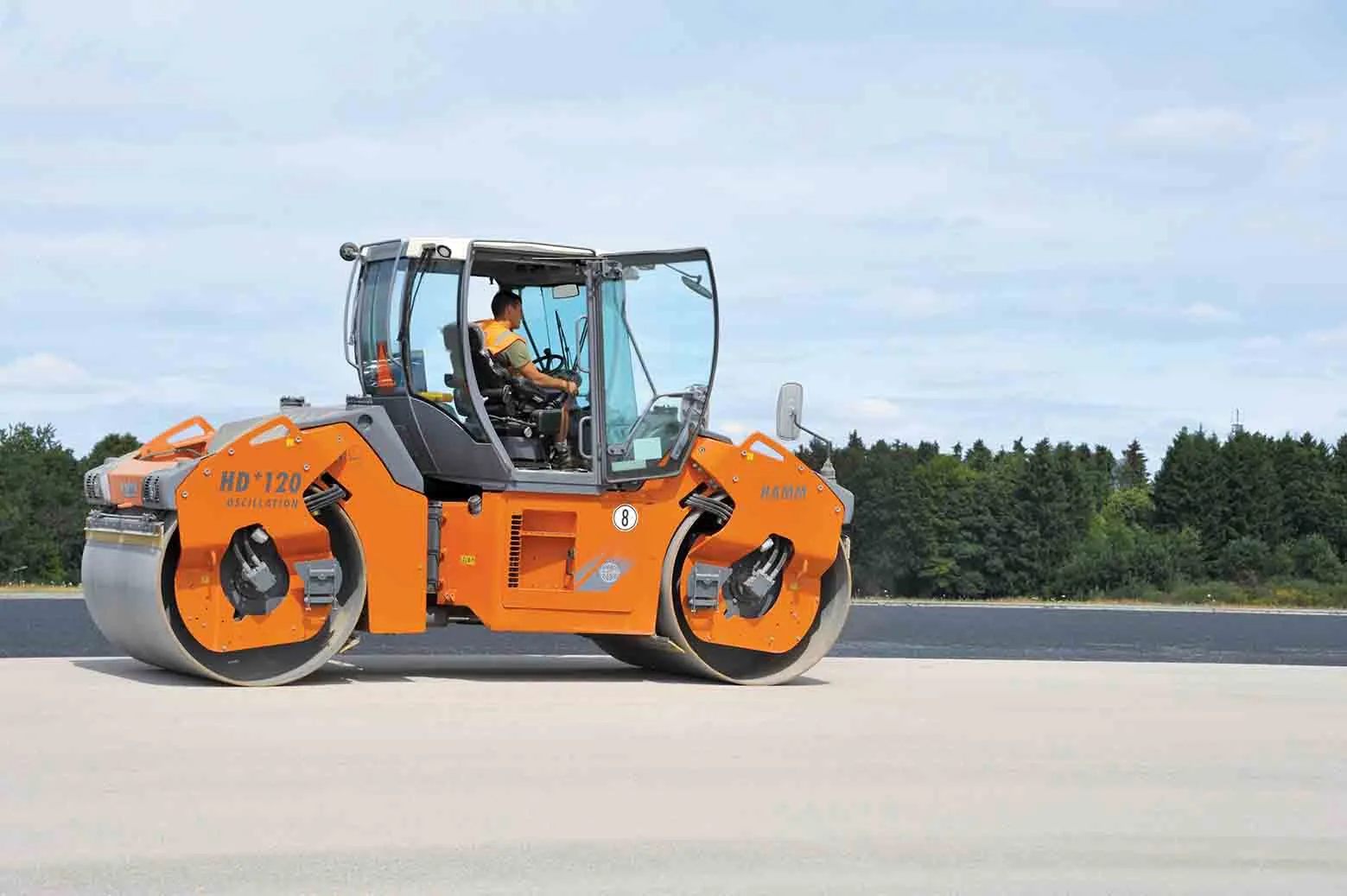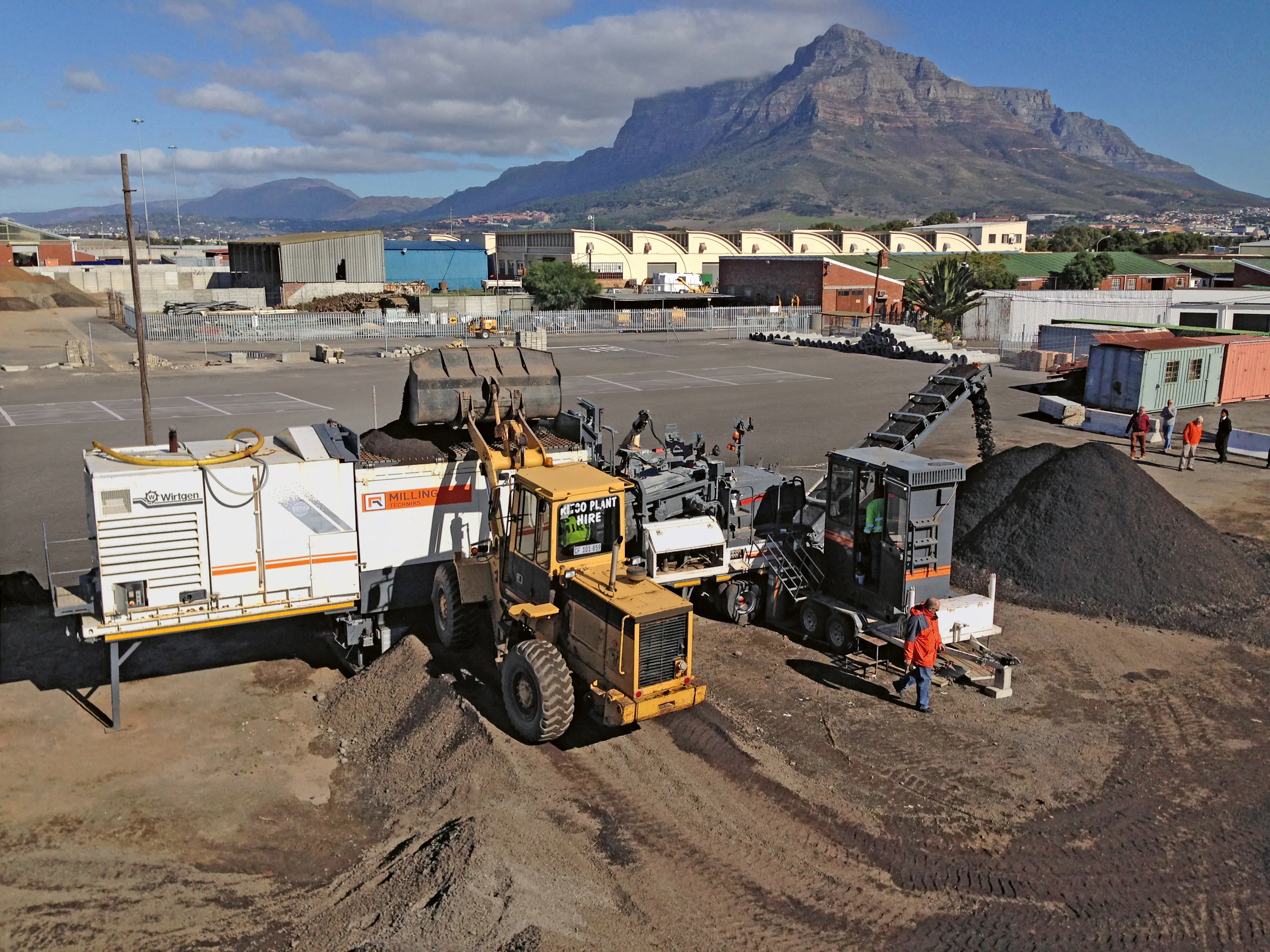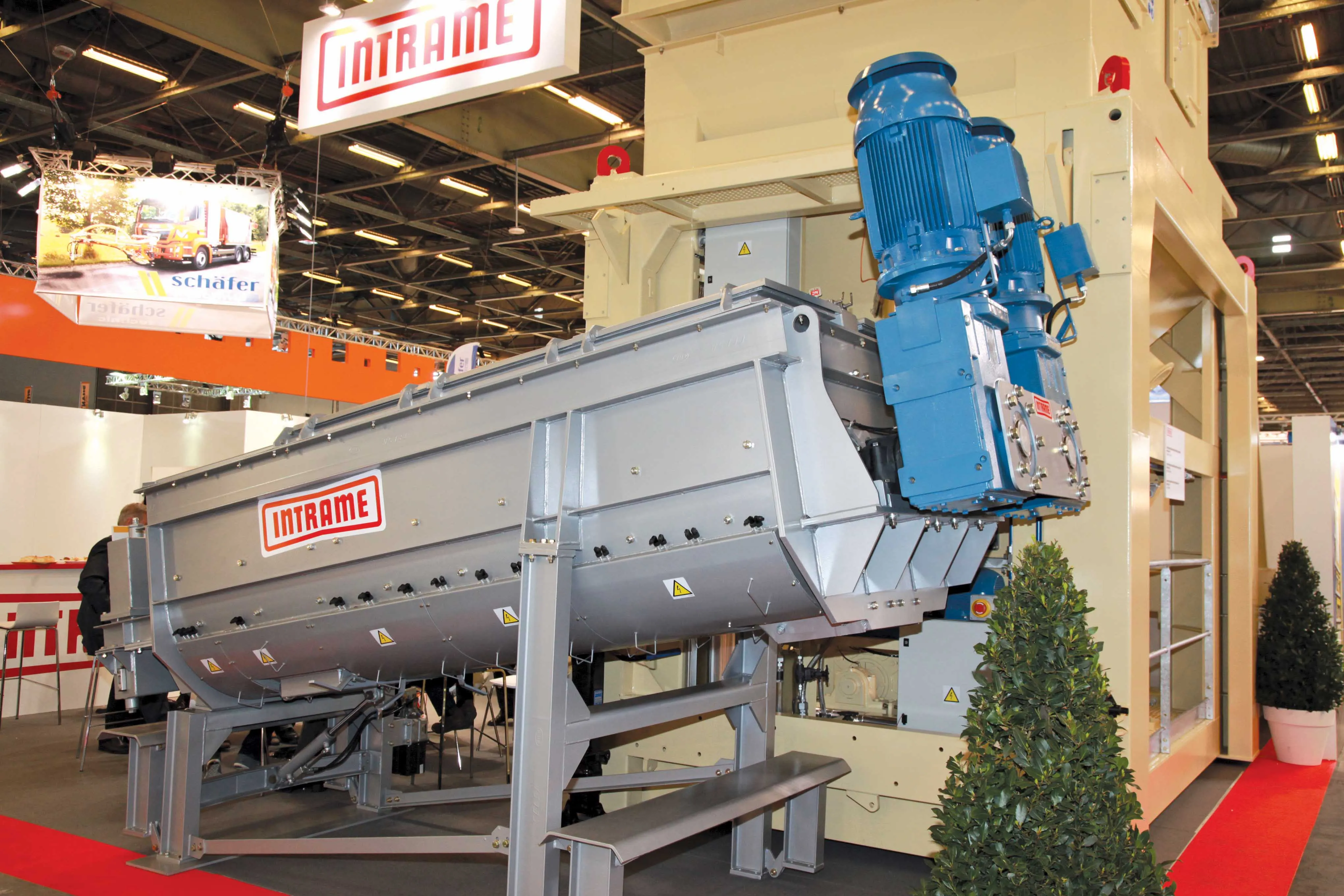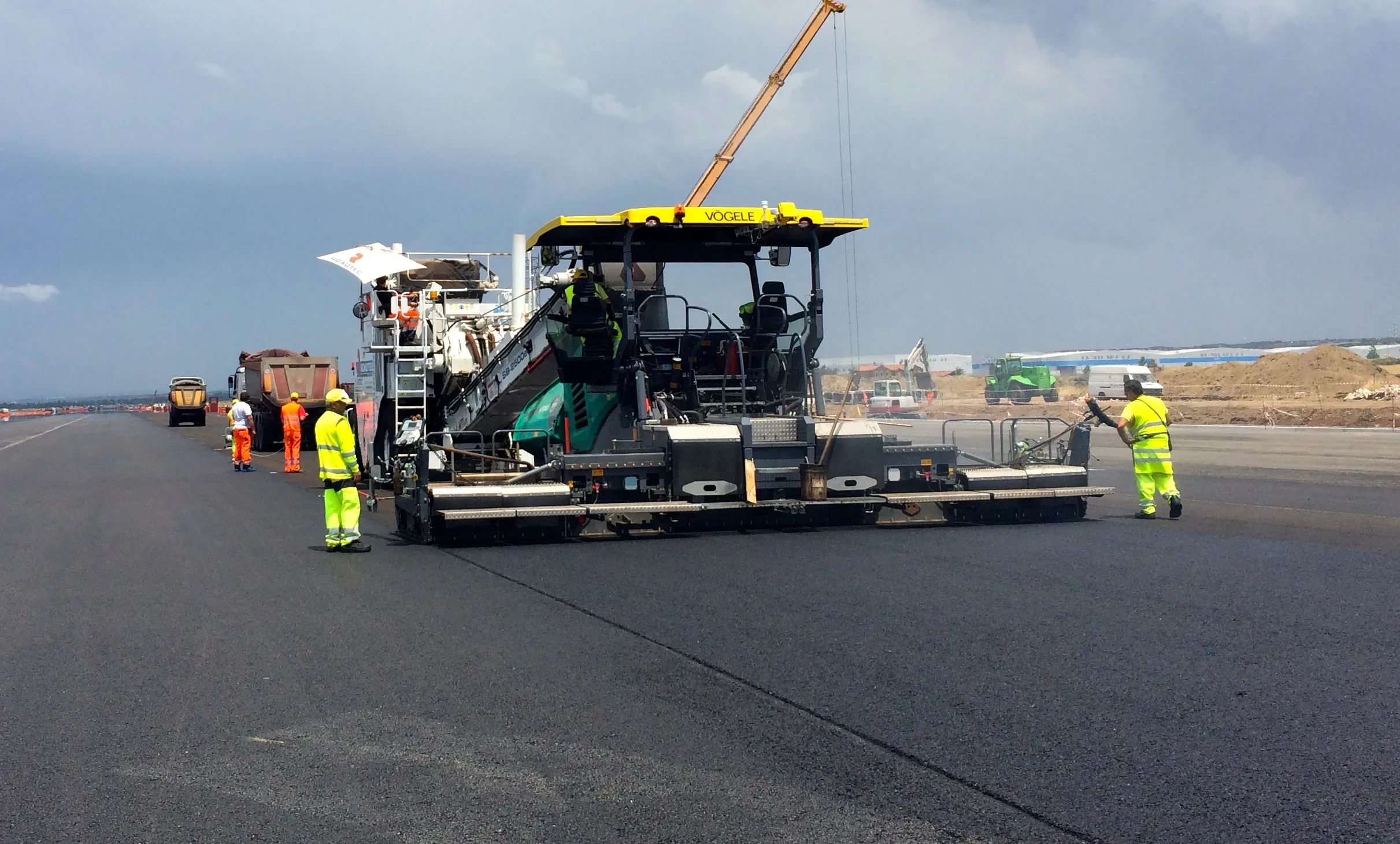The Czech Republic has seen its first ever use of warm mix produced using additive Evotherm - and a survey carried out in the US shows that warm mix is still on the rise there - Kristina Smith reports
The troubled Blanka Tunnel in Prague will see the Czech Republic’s first ever use of Evotherm warm mix asphalt (WMA) technology. The 6km tunnel is the longest urban motorway tunnel in Europe and will take the north-west section of the city ring road below ground.
Designed as dual carriageway throughout w
May 20, 2014
Read time: 4 mins
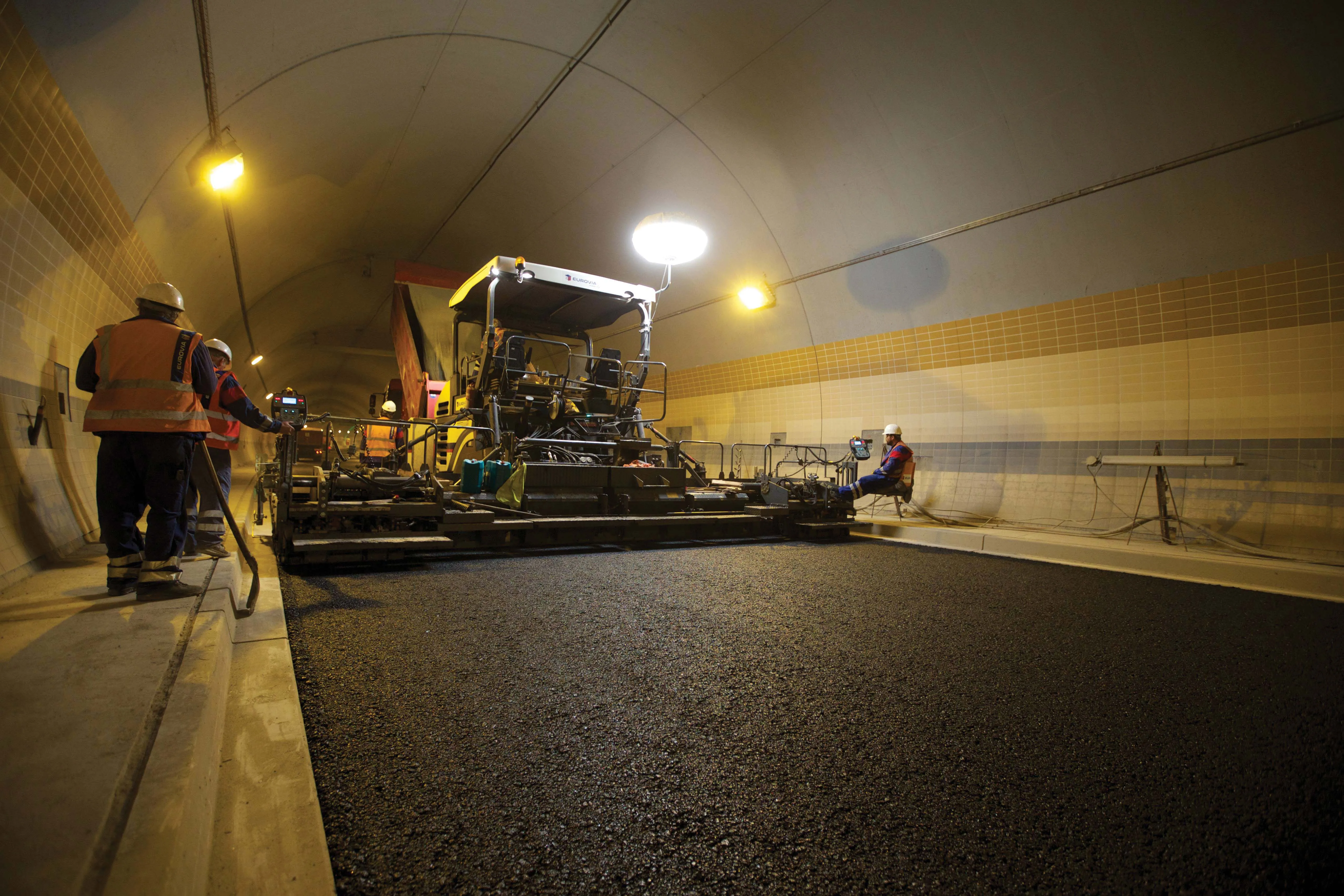
The Czech Republic has seen its first ever use of warm mix produced using additive Evotherm - and a survey carried out in the US shows that warm mix is still on the rise there - Kristina Smith reports
The troubled Blanka Tunnel in Prague will see the Czech Republic’s first ever use of Evotherm warm mix asphalt (WMA) technology. The 6km tunnel is the longest urban motorway tunnel in Europe and will take the north-west section of the city ring road below ground.
Designed as dual carriageway throughout with separate tunnels for each direction, the Blanka Tunnel actually consists of three tunnel sections which have been constructed using a combination of cut-and-cover and NATM. Its purpose is to eliminate through-traffic from the1384 UNESCO historical centre and improve connectivity.
The Czech arm of3281 Eurovia, Europe’s biggest road contractor, carried out the paving. Eurovia works with manufacturer 3325 MeadWestvaco (MWV) to promote the use of Evotherm in the 3287 EU.
“The main driver to use Evotherm on such a prestigious project was the lack of fumes and emissions in such a confined place which is important for the comfort of the workers,” said Claude Giorgi, technical marketing and service manager – asphalt innovations for MWVG Europe.
According to MWV, Evotherm produces less fumes during the construction process: greenhouse gases, nitrogen oxide and sulphur dioxide are drastically reduced. In a tunnel environment this becomes even more important for the paving crews than on jobs at surface level.
Evotherm 3G sees chemicals added to the bitumen to give the necessary workability, but at lower temperatures. In Prague, 0.5% of Evotherm was added, allowing a manufacturing temperature of around 145°C and a laying down temperature between 130 and 135°C, 30° less than would have been required for hot mix asphalt (HMA).
MWV measured gas consumption at the Klecany plant where the mixes were manufactured and calculated that 25% less was required for the WMA compared to HMA. This clearly brings further environmental benefits, although the cost savings will be offset to some extent by the cost of the Evotherm.
The pavement design for the road in the Blanka tunnel consists of a 35mm stone mastic asphalt (SMA) wearing course, an 85mm binder course and a 20mm thin asphalt layer, separated from the concrete base by a SAMI membrane. All three asphalt mixes, contained highly modified SBS binders.
The Blanka Tunnel has been a challenging project for constructor Metrostav, with setbacks and delays including tunnel collapses. Construction began in 2007 and the tunnel complex will open this year, three years later than planned. The tunnel has also received criticism from some environmental organisations which believe it will encourage more road traffic in the capital city.
The original cost was estimated at around €1.025 billion, including €870 million for the construction work. However, due to the problems the link has suffered the project is expected to cost in the order of €1.42 billion.
One quarter of US asphalt is warm mix
The latest survey on the use of warm mix asphalt (WMA) in the US shows that it accounted for 24% of all asphalt produced by weight, in 2012. This represented an increase of 26% compared to 2011 and 416% since the survey was first conducted in 2009.
The National Asphalt and Pavement Association (NAPA) carried out the survey of 213 companies with 1,141 asphalt plants in mid-2013, on behalf of the2410 Federal Highway Administration. The purpose of the annual survey, which also looks at the use of reclaimed asphalt pavement (RAP) and reclaimed asphalt shingles (RAS) is to measure and promote the use of sustainable practices.
“It is important for the industry to track the deployment of these technologies, which reduce costs, energy, waste, emissions, and the amount of new materials required for road construction,” according to the report. The majority of WMA is produced using foaming technology. Additives were used in the production of 12%, up from the 5% reported in 2011 but down from a 17% share in 2009.
It is also interesting to note that while 21 states reported an increase of 5% of more in WMA, eight states had a decrease of 5% or more with three states – Oklahoma, Louisiana and Washington – reported a 20% or greater decrease in WMA production. “The reasons for these fluctuations are uncertain,” says NAPA in the report.
The report also showed that the use of RAP is widespread. The percentage of producers using RAP grew from 96 in 2009 to 98 in 2012, with the average percentage of RAP used increasing from 16.2% in 2009 to 19.6% in 2012.
The troubled Blanka Tunnel in Prague will see the Czech Republic’s first ever use of Evotherm warm mix asphalt (WMA) technology. The 6km tunnel is the longest urban motorway tunnel in Europe and will take the north-west section of the city ring road below ground.
Designed as dual carriageway throughout with separate tunnels for each direction, the Blanka Tunnel actually consists of three tunnel sections which have been constructed using a combination of cut-and-cover and NATM. Its purpose is to eliminate through-traffic from the
The Czech arm of
“The main driver to use Evotherm on such a prestigious project was the lack of fumes and emissions in such a confined place which is important for the comfort of the workers,” said Claude Giorgi, technical marketing and service manager – asphalt innovations for MWVG Europe.
According to MWV, Evotherm produces less fumes during the construction process: greenhouse gases, nitrogen oxide and sulphur dioxide are drastically reduced. In a tunnel environment this becomes even more important for the paving crews than on jobs at surface level.
Evotherm 3G sees chemicals added to the bitumen to give the necessary workability, but at lower temperatures. In Prague, 0.5% of Evotherm was added, allowing a manufacturing temperature of around 145°C and a laying down temperature between 130 and 135°C, 30° less than would have been required for hot mix asphalt (HMA).
MWV measured gas consumption at the Klecany plant where the mixes were manufactured and calculated that 25% less was required for the WMA compared to HMA. This clearly brings further environmental benefits, although the cost savings will be offset to some extent by the cost of the Evotherm.
The pavement design for the road in the Blanka tunnel consists of a 35mm stone mastic asphalt (SMA) wearing course, an 85mm binder course and a 20mm thin asphalt layer, separated from the concrete base by a SAMI membrane. All three asphalt mixes, contained highly modified SBS binders.
The Blanka Tunnel has been a challenging project for constructor Metrostav, with setbacks and delays including tunnel collapses. Construction began in 2007 and the tunnel complex will open this year, three years later than planned. The tunnel has also received criticism from some environmental organisations which believe it will encourage more road traffic in the capital city.
The original cost was estimated at around €1.025 billion, including €870 million for the construction work. However, due to the problems the link has suffered the project is expected to cost in the order of €1.42 billion.
One quarter of US asphalt is warm mix
The latest survey on the use of warm mix asphalt (WMA) in the US shows that it accounted for 24% of all asphalt produced by weight, in 2012. This represented an increase of 26% compared to 2011 and 416% since the survey was first conducted in 2009.
The National Asphalt and Pavement Association (NAPA) carried out the survey of 213 companies with 1,141 asphalt plants in mid-2013, on behalf of the
“It is important for the industry to track the deployment of these technologies, which reduce costs, energy, waste, emissions, and the amount of new materials required for road construction,” according to the report. The majority of WMA is produced using foaming technology. Additives were used in the production of 12%, up from the 5% reported in 2011 but down from a 17% share in 2009.
It is also interesting to note that while 21 states reported an increase of 5% of more in WMA, eight states had a decrease of 5% or more with three states – Oklahoma, Louisiana and Washington – reported a 20% or greater decrease in WMA production. “The reasons for these fluctuations are uncertain,” says NAPA in the report.
The report also showed that the use of RAP is widespread. The percentage of producers using RAP grew from 96 in 2009 to 98 in 2012, with the average percentage of RAP used increasing from 16.2% in 2009 to 19.6% in 2012.


